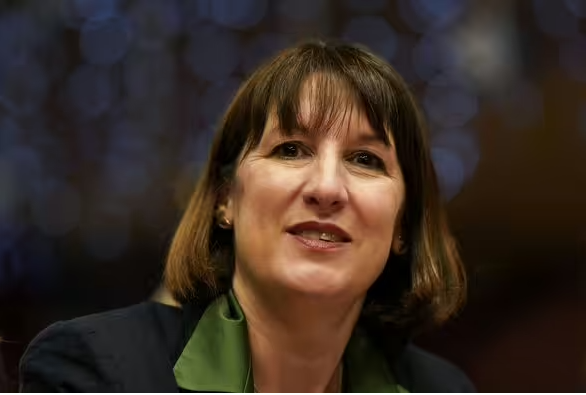Debt interest payments push public finances deeper into the red in fresh blow to Rachel Reeves

The UK government borrowed more than expected in October as debt interest payments pushed the public finances deeper into the red, piling pressure on Rachel Reeves as she attempts to grow the economy.
Borrowing rose to £17.4bn last month, the second highest October figure since monthly records began in 1993 and despite a rise in inheritance tax receipts.
City economists had expected a smaller figure, of about £12.3bn for October, after the UK borrowed more than £16bn in September.

The Office for National Statistics (ONS) said public sector net borrowing was £1.6bn higher than the same month last year.
In a further blow to efforts by Reeves, the chancellor, to bolster the economy and bring down debt levels, the figures showed that monthly central government debt interest rose to £9.1bn – the highest October figure on record.
The cost of government borrowing on international markets has fallen since last month’s budget – the interest rate on 10-year bonds has fallen from 4.6% to 4.4% – but the large slice of debt payments linked to the retail prices index measure of inflation increased since September.
Reeves has loosened the Treasury’s budget rules to allow for more borrowing over the next five years. In her budget, she set out a real-terms increase in day-to-day spending on public services of 4.3% this year and 2.6% next year, before pencilling in a rise of 1.3% each year.
Alex Kerr, an economist at the consultancy Capital Economics
He said while Reeves had downplayed the chances of further tax-raising measures, “if she wants to increase day-to-day spending in future years, she may need to raise taxes to pay for it”.
The ONS said an expected drop in tax receipts after two big cuts to national insurance contributions had failed to materialise. “However, with spending on public services, benefits and debt interest costs all up on last year, expenditure rose faster than revenue overall,” it said.
Darren Jones, the chief secretary to the Treasury, said: “Our new robust fiscal rules will deliver stability by getting debt down while prioritising investment to deliver growth.”
Matt Swannell, the chief economic adviser to the EY Item Club, said: “Despite the changes announced at the budget, fiscal policy will continue to tighten over the next few years.
“Moreover, the chancellor has left herself little [wriggle] room against her own fiscal rules and may need to implement more tax rises in future years if the tax take disappoints or spending proves higher.
after newsletter promotion
“Indeed, if the rise in market interest rates since the budget is sustained, the government would already have less headroom against its fiscal targets.”
Separate figures from HMRC showed that tax receipts from estates in the UK rose to £5bn in the first seven months of the 2024-25 financial year – an 11% increase on the £4.6bn received in the same period in the previous year.
It means Reeves is on course for a fourth consecutive year of record annual inheritance tax (IHT) income. The rise follows a freeze on IHT thresholds dating from 2010, which was extended by Reeves for a further two years.
The chancellor has also reformed two important elements of the IHT scheme – agricultural property relief (APR) and business property relief (BPR) – to limit the extent of the benefit for farmers and business owners. Farmers gathered in Westminster this week to protest against the decision.
A long-running exemption for individual pension pots from IHT was also cancelled by Reeves in the budget, which is likely to raise the value of many estates above the basic threshold of £325,000.
Cuts to APR relief and BPR relief from next April and a restriction on the inclusion of pension pots from 2027 allowed the Treasury’s independent economic forecaster, the Office for Budget Responsibility, to estimate that receipts from IHT would hit £50bn over the next five years, up £8bn from its prediction in March.

